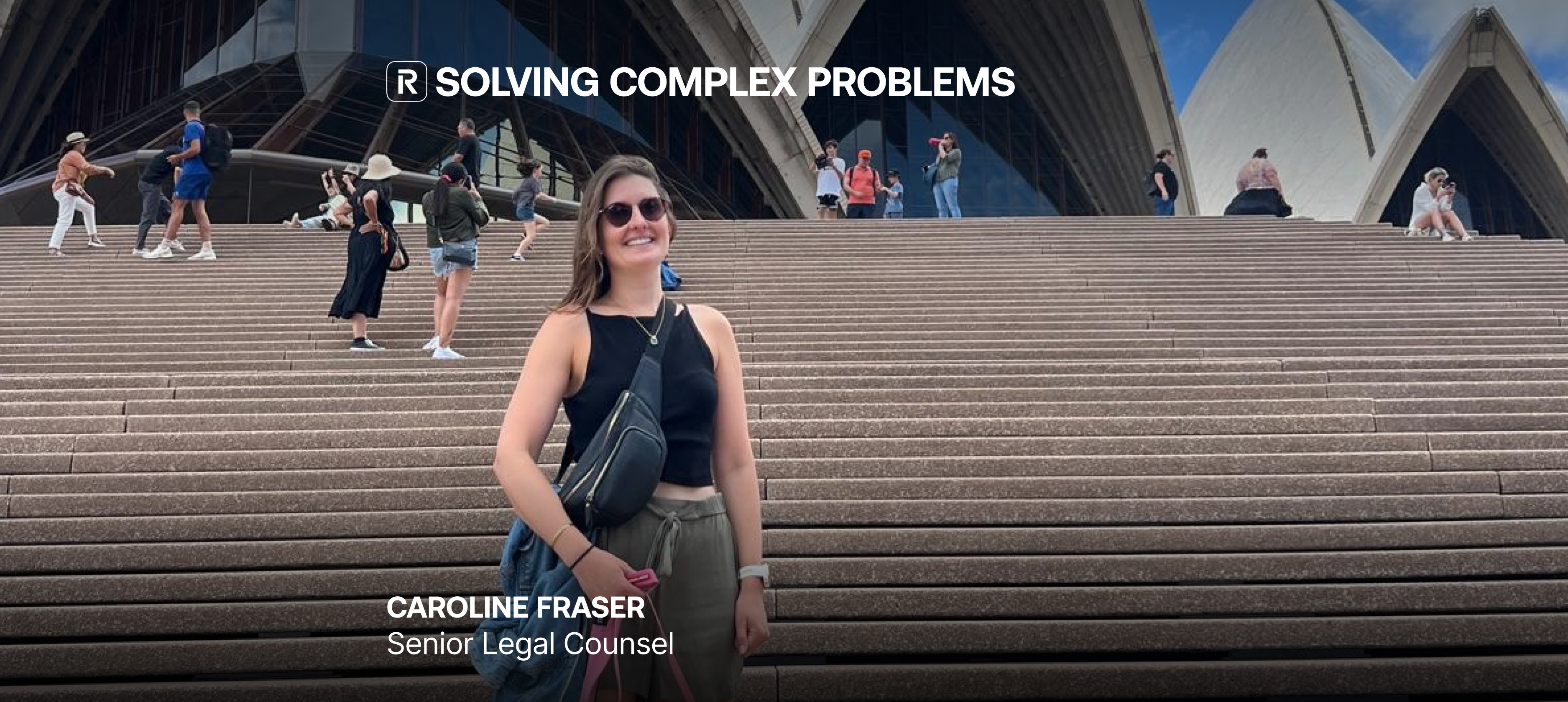
Solving Complex Problems: Caroline Fraser on legal challenges, global thinking, and digging deeper
People · 29 August 2025Eleanor Taylor · Nicolás Vásquez
Solving complex problems is part of the job description at Revolut — but how we approach those challenges is what sets us apart. In this interview, Caroline Fraser, Senior Legal Counsel based in Sydney, shares her first-hand experience navigating cross-border issues, collaborating with global teams, and delivering thoughtful, future-ready solutions.
What does solving complex problems mean to you?
To me, it's about truly understanding the problem first. At Revolut, we work across different markets and entities, so challenges are often layered and complex. You need to dig into the issue, uncover the facts, and get the full context — otherwise, you risk solving the wrong thing.
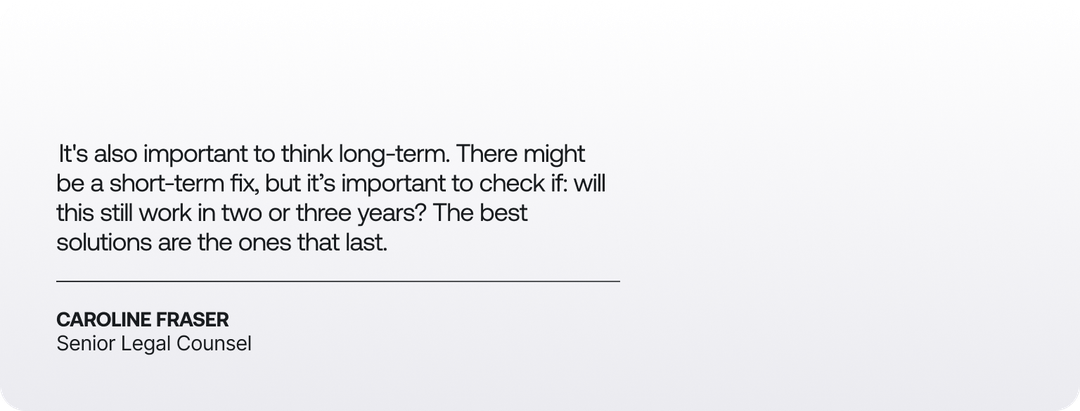
What makes Revolut different to other places that you've worked?
We’re set up for real-time, global collaboration. You can message someone on Slack or jump on a quick Google Meet, no matter where they are, which really speeds things up.
In more traditional workplaces, it’s often more formal — slower processes, more hierarchy. But here, we’re all aligned on getting things done efficiently. Everything’s in the cloud, and there’s a strong culture of responsiveness and ownership.
What’s the mindset needed to thrive in a problem-solving culture like this?
You need to be proactive and thorough, and understand what the product owners or stakeholders actually need — whether it’s regulatory, commercial, or related to customer experience Then dig deeper to uncover the broader implications.
It’s also about cross-functional thinking. Just because a solution works for your team doesn’t mean it won’t create challenges for others.
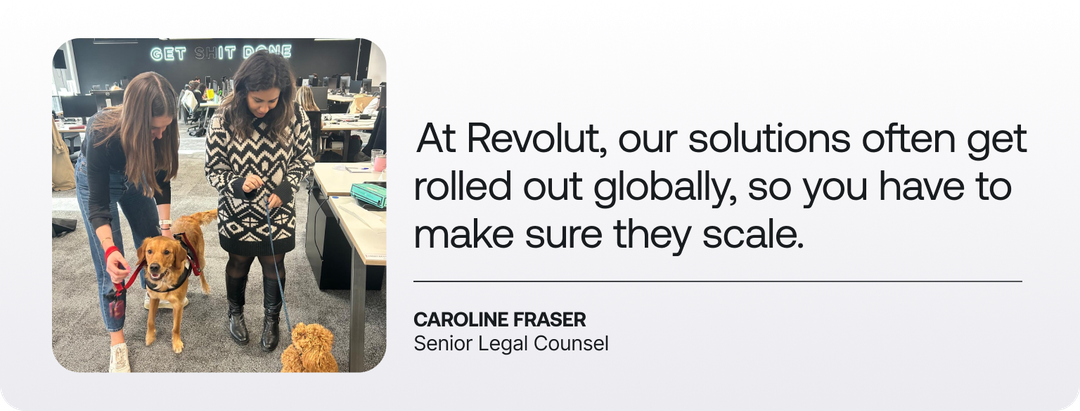
How do you know when you've found the best solution to a problem?
I always come back to what the stakeholder needs and whether my solution helps them achieve that — and ideally it should go a step beyond. That’s what ‘delivering wow’ looks like.
Sometimes that means thinking beyond legal. For example, a growth team might want help with a campaign with the structure and T&Cs. I might also look at how we can improve the customer journey and marketing from a UX perspective. It’s not just about compliance, but about impact.
What role does data play at Revolut?
Data is essential. We track everything in Jira, which helps us spot patterns. If a particular type of query keeps coming up, that’s a sign we need to create a process or training to make things smoother.
It also helps us revisit past advice. We look at how we solved similar problems before, who was involved, and what worked — and that makes us more efficient and consistent.
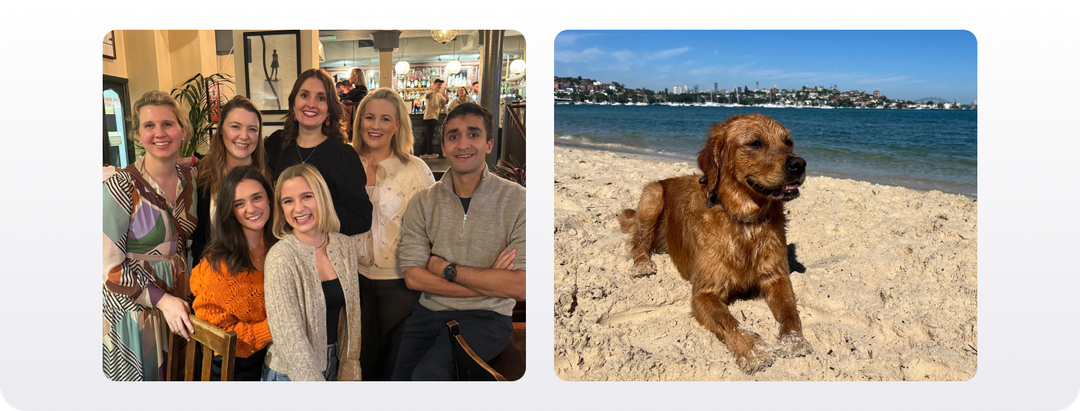
What’s a common mistake people make when tackling complex problems?
Not going deep enough. If you only look at something on the surface, you’re probably missing key context. I always try to speak to multiple teams, read past advice, and really understand any previous learnings.
It’s also easy to feel pressure to come up with something quickly, especially in a fast-paced environment. But rushing usually leads to the wrong solution. Slowing down to go methodically through the issue and being flexible about change is worth it.
How does working in a high-growth, fast-paced company impact problem-solving?
A fast-paced work environment drives a sense of urgency that helps things get done. Everyone's working toward common goals, for example growing customer numbers in our markets, so there’s a shared sense of purpose. People are responsive and willing to collaborate because we’re all trying to move forward efficiently.
That momentum means we’re all keen to help each other. When someone comes to you with a problem, there’s a genuine willingness to jump in and figure it out together. It makes solving problems a team effort, not just an individual task. Revolut has a pace that encourages ownership. When people care about the outcome, they’re more open to helping and problem solving together.
How do you keep improving your problem-solving skills?
The more situations you’re exposed to, the more you build context and recall. I also learn a lot from others — listening in on calls, being in team meetings, and seeing how colleagues handle things.
And I really value feedback. If a product owner or business stakeholder has suggestions, I take them seriously.
What’s one piece of advice you’d give to someone starting at Revolut?
Introduce yourself! Build relationships early, even if it’s just virtual coffee chats. Having a strong internal network makes everything easier. If you’re working remotely, it is important not to feel isolated.
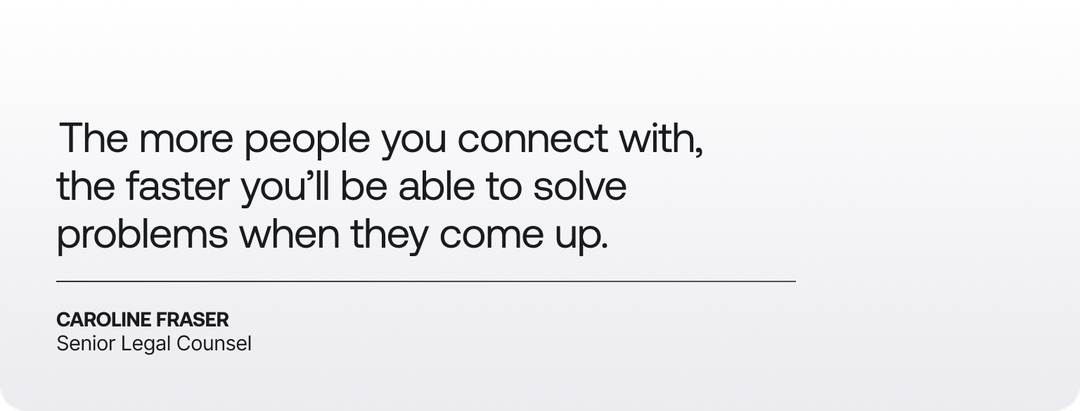
Can you share an example of a tough problem you've tackled and how you approached it?
One of the more complex projects I worked on was getting the UK bank ready for testing. That involved preparing T&Cs, working through what services would be provided and by which entity, and coordinating across legal, regulatory compliance, tax, finance, and product teams.
Now I’m doing similar work for our New Zealand banking readiness, and every region brings new challenges but the same principles apply: aligning the legal structure, making sure customer comms are crystal clear, and understanding all the implications of each product/business decision (not just legal and compliance but also cost, customer impact, and timing).
Finally, how did you navigate your move from the UK to Australia — and the challenges of working in a different time zone?
I started at Revolut on secondment in Regulatory Compliance in August 2019 in the London office, became an employee in December and moved into the Group Regulatory Legal team the following April. When I relocated to Sydney in November last year, I joined the Australian legal team in a broader role — doing everything from regulatory and product legal work to commercial contracts, corporate/governance, and financial crime legal work. 50% of my current remit is supporting New Zealand.
The move itself was exciting but working across different time zones is more of a challenge from Australia but I’ve learned that being intentional with time is key. If you need a call, make sure it’s purposeful and planned so it’s efficient for both sides. It’s also about being respectful of others’ working hours.
That said, it’s a global company, and people are used to collaborating with people in different regions. Slack makes it easy to stay in touch, and I’ve built strong relationships with colleagues in Group and other entities from my time in London. Knowing who to message when something comes up is important, and everyone is always open to jumping on a call when needed.

Problem solving at Revolut
Caroline’s story shows how solving complex problems is about more than just process — it’s about global collaboration, real ownership, and doing the right thing for customers and teams.
We’re proud to empower people like Caroline to go further and build the future of finance.